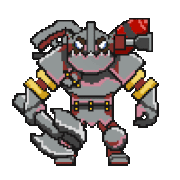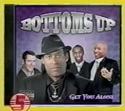|
    1) Before asking a question: • Please at least do a ctrl-f of the OP first; it's very likely going to at least brush over what you're curious about and help you ask more pointed and direct questions. Also, if you want to know "how do I respond to X question" then take the time to google "x question interview answer" first; that way you are able to ask more pointed and specific questions and receive better answers. 2)Before offering advice: • Please make sure that you're giving actionable and observable tips, something that would fit in a S.M.A.R.T. goal, because it's important that people can actually accomplish what you're telling them and feel confident about it (i.e. "Be nice" vs. "Smile, respond with positive verbiage like 'absolutely!' and always find something to compliment each person on"). 3)I've recently taken on a new role in my career and won't be available to reply very often: • Sorry about that, but everything I am laying out below is how I was able to get a job I wasn't qualified for and over the last decade built a very comfortable career spanning several companies and titles without a college (or highschool) diploma. I mean there's hard work and dedication sure, but that's the easy part compared to just getting the opportunity to prove that's what you are capable of.     Old thread is here. ---------------------------------------------------------- Hi, I'm a guy who is pretty good at interviewing, and who trains people to interview on a regular basis. My credentials: I’ve been interviewing for over a decade, hiring for both direct reports and in general. My workplace peers have been populated by up to 50% of my ex-employees (who I force into roll-playing interviews and letting me review their resume from the moment they tell me they’re interested in a promotion). I have ex co-workers and employees from years ago who will ping me for interview refreshers as they move upwards, and sometimes past me, in their careers (it happens, and I get a lot of joy out of that). I’ve helped people become trainers, managers, analysts and just about any other position you can think of. It’s just one piece of their success, but it’s the one that I consider to be the least taught and most woefully under-explained. It's important that everyone understands that interviewing is not "an art" and that there's not some mystical power that some have and others don't. Simply put, interviewing is as much a science as technical writing. Those that study the formulas behind it and practice the most will virtually always get the job given a completely equal resume (generally, even with a much less impressive one. Stats do not get hired, people do). For example, f you have thought any of the following things, then this thread is begging for you to read it:
To get started, let’s just get on the same page as to what each interview can look like and what basics you should be prepared to turn into habit. ------- Types of interviews: —Phone (or screening Interview— • Purpose: It acts as a cost effective method of quickly (usually 10-30 minutes) ascertaining whether or not a candidate has the ability to communicate well while projecting enthusiasm and confidence without the benefit of their good looks or gestures. Some basic general questions and basic job related questions will be asked, but In most cases the intent isn’t picking good candidates so much as weeding out terrible candidates. • How to successfully navigate a phone interview: Have your resume, any professional references, the job description, and details of successes you've had in your work history spread out in front of you. Print them single-side and lay them out face up, page by page, next to each other so that there’s no rustling sound as you look over them. Have another page with a bulleted list of your professional successes/talking points and best answers to common interview questions for your field (and in general). Remember, you’re only a voice, and they need to hear you smiling at the opportunity to talk to them. Use positive filler such as “Sounds great!” and “Perfect!” instead of “OK.” Dress up, lock yourself in the closest thing you have to a quiet office, and try to visualize the person as being right across from you. —One-on-One or Face-to-Face Interview— • Purpose: This is the most common interview for a reason. This allows an employer to observe how you groom/dress during what should be your attempt at impressing someone, how you carry yourself in a professional environment and how you perform during a structured interrogation over the course of 30-90 minutes. • How to successfully navigate a one-on-one or face-to-face Interview: Dress like this is important (polished shoes, tie, groomed, etc.) and carry yourself well (chin up, back straight, relaxed smile). Be polite; thank them for meeting with you when you enter, and again when you leave. Gather your thoughts before speaking, and it’s always OK to ask for, “just one moment, if that’s alright, to decide which scenario best fits that question.” Answer questions directly, and in the exact format specified. Be truthful, but don’t say anything that might not be received well and doesn't pertain to your ability to be the best fit for the position you’re applying for. Remember, whoever is best at conveying why they’re the best fit for both the company and the position gets the job. Your goal here is to make them feel like you understand and selected their company and their culture to spend most of your mutually beneficial waking hours with. Like going on a date, you don’t want them thinking you’re after them because you haven’t been laid in months, because you think they’ll let you buy nicer things or that you’re only here because “any port in a storm, amirite!” —Group Interview— • Purpose: This allows the employer to view how each candidate adapts to meeting new people, how they interact with the other candidates in the room and a clear view of how shy or confident each is in a group setting with their peers. This style is done with one or multiple interviewers, and all candidates interviewing while seated next to each other in the same room. • How to successfully navigate a group interview: The questions are usually very soft-ball, because the focal point is mannerisms, professionalism, confidence and politeness in a potentially stressful situation. There are two ways this might be delivered. The first is having questions tossed out to the group for anyone to answer, and the second is direct questions to each interviewee. It’s hard to screw up with the questions (usually general stock things like “Tell me about yourself” or “what do you do when things don’t go your way?”), but it’s easy to forget one or more of the following: shake every single person’s hand and introduce yourself when you arrive (15 minutes early) and another shake and nice to meet you (by name) on the way out, listen visibly and smile while others are answering questions, never interrupt anyone in the room—no exceptions, step up and answer questions if tossed to the group, keep your answers concise and pointed (2-3 minutes max) and respond to the interviewer and not the other interviewees. —Panel Interview— • Purpose: To allow several perceptions of the same answer to be discussed after the interview. Two (or more) heads are better than one, right? Often this will include interviewers of varying job titles, from entry level to middle management, or it may simply be a peer interview (made up of people that hold the position you’re applying for). In the latter case, it’s primarily to ensure that the workforce would actually want to work with the candidate (though they have been trained on what kind of answers they’re looking for), this ensures that anyone hired by management will be well received. If this is the case, expect a second interview to be with management and to be a very similar experience in regards to the type of questions asked. The panel interview is common among high-level management and some public service interviews as well; board/committee members all enjoy having a say in who gets the job. • How to successfully navigate a panel interview: This is basically the same as a one-on-one interview, only you want to split 50% of each answer’s eye contact amongst the group while giving a solid 50% to the person that asked the question (and not all at once, please). Remember to thank each one (by name) for their time afterwards. —Stress Interview— • Purpose: To be a dick. Seriously. There are a lot more accurate and less bombastic ways to find out how a potential candidate handles stress than trolling them like this. Interviewers will ask ridiculous questions as though there were a distinct right or wrong answer and avoid eye-contact while giving awkward and disinterested pauses. They might even attack you personally with snarky questions about your hair. It can be in any setting, with any number of people, and is utterly useless IMO. Supposedly, creating bad blood and a poor first impression is a great way to see how a candidate will respond when faced with on the job stressors. • How to successfully navigate a stress interview: Locate the nearest door, and slam it on the way out. If they really want to know how you handle stress, they’d put you in a simulation of your new role for half an hour. Seriously. But . . . Egh . . . If you really, really need a job though and hate yourself a lot; Sit back, act like everything is normal. They won’t warn you this is the type of interview it is . . . but you’ll know. Act as though everything they’re doing is no big deal, and just keep on keeping on throughout the whole miserable hour just as you would in any other interview. For example, if they say “were you hungry when you put on your lipstick?” then keep your mannerisms and tone matching the idea that they were simply curious and reply with “not at all, I had just eaten because I wanted to be fully prepared for this interview.” —Informational Interview— • Purpose: This is your turn at bat. It can be for whatever you want, finding out more about a field, title, company . . . anything really. Salary, background; you name it! This is a real thing, why aren’t you doing it? • How to successfully navigate an informational interview: Find a professional, make a connection and ask them if you can set up an informational interview. Explain what you want to find out and whether and if they are available to practice a mock interview for their role, or really just whatever you want to get out of their time with you. Just be mindful it’s a courtesy on their part, so act like it throughout. Dress and present yourself as though this were a real interview, and set the time limit before hand—stick to it down to the second no matter what you’re in the middle of. You can always request another sessions later. —Online or Skype Interview— • Purpose: Generally, this is purely out of practical necessity. The job may be in another city, state or country and it just doesn’t make sense to fly people all over for an hour of their time. • How to successfully navigate an online or Skype interview: Follow all the guidelines for a one-on-one interview as well as a phone interview . . . just keep your papers spread out of sight of the camera (ideally condense them to no more than two pages—and tape them to the wall just behind the camera so it always looks like you have eye contact). Also, for the love of everything, clean up your house and make sure you have a nice background and time alone before it starts. This is one you definitely want to practice with a friend through a Google hangout or whatever first, just so you can get some feedback on exactly what you look like as you go through it and can fine-tune everything before the big show. Pissingintowind posted:To contribute, since you didn't explicitly mention case interviews, here's a quick write-up: ------- Types of questions/assessments —Behavioral Questions— • Purpose: Welcome to the stock interview inquiry. The idea, well researched and mother-approved, is that past behavior predicts future results. They want to know what you did, when and what the results were, not what you might do or what you think would be the best thing to do. • How to answer behavioral questions: Directly and as a story. If you hear “Tell me about a time,” “Can you tell me when you,” or “Give me an example of” then you will answer with “About [time] ago at [company] I [did things] with [people’s actual names] and [the end result was]. What I learned from this was [lesson] and it’s something that I try to pass on by [whatever method] to [achieve results faster/help others avoid pratfalls/whatever].” If you instead start your reply with “I would” or “I think” or “What I usually” then just excuse yourself from the interview and apologize for being terrible at parsing questions unexpectedly asked in plain English. In today’s interviewing environment this is the most common type of interview question, and my last question is the response most people give. —Competency Questions/Assessments— • Purpose: This helps an employer discover exactly how capable you are at performing the specific job role you’re applying for. This may be in the form of a written test, role-playing/performing skills that you would actually be employing in the position, or just as questions peppered throughout an interview. • How to answer competency questions/assessments: This one is all you. If they ask you “Can you give me a specific example of your leadership skills?” it’s up to you to have you’re your research and know a) what a leadership skill is, b) what an example of it looks like c) which ones you are most successful with and fit this particular job role/culture the best. If they give you a test asking you “describe the difference between a breadth-first search and a depth-first search” then you should probably know the answer. If they ask you to read a paragraph in Spanish, then OK great you should know how to do that. They might have you pick up a phone that has a mock irate customer with an overdraft on the other end and you need to calm them down to get them to another department. Know what the company expects from the position you’re applying to; Google it, learn about it and talk to people who do it for a living. You should do everything to wow them here, but your breathing room is that if you ace everything else, then falling a smidge short here is more forgiving than anywhere else in an interview since it’s easier to teach a job skill than it is to teach drive, communication and sound judgment. Don’t expect even a remote chance at the position if you outright bomb it though. —Hypothetical/Opinion Questions— • Purpose: Mostly, the goal of these sorts of questions try to separate the nuances between the you that you present yourself as, and the you that actually exists most of the time. “Tell me about a time you had to deliver a message you didn’t agree with” doesn’t come with the internal turmoil and thought process you’ll display if they ask, “What would you do if a single parent who worked for you asked about layoff rumors because their home might be foreclosed on and they needed time to find a new job if true? Take into account that you know layoffs start next week, but you have been asked not to say anything to your staff.” • How to answer Hypothetical/Opinion Questions: The guiding principle here is that most of these questions will be based around the job skills you’re applying for. A good way to process these questions is by turning them into “Tell me about a time” answers whenever possible. For example, a bank may ask “Hypothetically, if your friend stole something trivial from someone, what would you do?” can be thought of as “Tell me about a time a co-worker you liked stole something trivial from the company you worked at, and how did you react?” If you don’t have an example, that’s ok because some of the questions may intentionally not quite fit your experiences, but if you at least process them with all this in mind you’ll stay closer to the answers they’re looking for. —Oddball Questions— • Purpose: From my experience with them, it’s mostly to lighten the mood or to make whoever wrote the interview feel clever. You don’t get much out of them (i.e. “what’s your favorite animal” and “what do you think about when you are alone in your car?”) compared to questions that are directly related to performance and behavior. Some people like to talk about how it shows an interviewee’s ability to be creative and think on their feet, so I guess I’ll go with that. • How to answer oddball Questions: If it sounds utterly ridiculous i.e. “How many quarters would you need to reach the height of the Empire State building?”, then just shoot out whtever comes to mind. Say “More than I’ve got!” Say “Exactly enough to reach the top!” Say anything except “I don’t know.” However, if it’s just out of left field but not actually utterly ridiculous i.e. "Jeff Bezos walks into your office and says you can have a million dollars to launch your best entrepreneurial idea. What is it?" Then you probably applied at Amazon and they probably just want to know if you have any idea what direction/industry Jeff Bezos is currently (likely publicly and vocally) interested in pursuing to see if you’re here for a job or because you have an actual interest in Amazon and it’s goals. runlegosleeprepeat posted:I've heard of interviews in technical fields using some oddball questions. For example, "How many barbers are there in Chicago?" Any other questions will just be mix of general direct and non-direct inquiries regarding job duties, your personal interests, etc. etc. etc. to see if you actually had jobs and how nicely you’d fit into the culture. They want to feel you out to see if you’re the kind of person they want to be around 8 hours a day, 5 days a week (or more) too, y’know. ------- So, where an interview falls apart for most people is when they try to understand how exactly they’re supposed to better answer the question than their competition. Experience plays a role, but recognizing the experiences that you’ve already had is usually the crux of the issue. So let’s start with a simple breakdown: Here is how you should think of every question that you are asked; each one will be graded on a 1-5 scale even if they're not going to do that at all. Memorize this scale:
Let's start with the glue that holds the 1-5 scale together. You've probably heard "You're interviewing for your next position every day." and you probably think it means "Make people like you, network and/or also look great all the time." That’s a very superficial take on it that gets touted in almost every workplace, and I want you to change your understanding of that question entirely. Instead, it should be understood as every day you should be actively hunting the answer to one of the "Tell me about a time . . ." questions that interviewers love so much. Actively search them out. That means that you need to have an understanding of what the interview questions will be. Google the interview questions for the position you want, ask co-workers and managers what questions they've been asked, tell your boss that you want a mock interview and then do all three of those again twice a month. Once you have those questions, start looking at your day differently. If you know they're going to ask "Can you tell me about a time that you delivered a message that you didn't agree with?" then start paying attention to what you don't agree with and what you're saying to people about it. Also, as you look up questions you probably read great answers as well, so try acting them out in your work life. So, you're saying in all capital letters, "I HAVE THE ANSWERS BUT THEY JUST WANT WHO THEY WANT!" Well no, that's almost never true. It’s very rare for a company to pass on the more impressive candidate, there’s money and profits at stake remember, so be the most impressive candidate. So great, now we come to the most important part—interview communication. Remember, at the end of the day if someone knows how to do the job perfectly and has the best attitude then they’ll get the job . . . If they can explain how and why that’s true in a professional and desirable manner. So, without further ado: ------- Interview communication —Verbal Faux Pas and Saying What You Mean— Beware the but!: When you use the word “but,” you are saying, “I only mentioned that previous thing so I could devalue it. Now, here’s what I want you to focus on.” Never, ever put a positive talking point or something you want to carry weight before a “but.” For example: "I didn't always get along with my boss, but we always got the work done and I learned a lot," vs. "We always got the work done and I learned a lot, but I didn't always get along with my boss." Same words, same intent, but you can clearly see what matters most to the person in each example. Anything that may be perceived as a negative should always go first. ”Honestly, I” or “To Be Honest”: Unless you’re going to say “Honestly, everything I’m about to say is just more evidence pointing to why I fit your culture and needs perfectly,” then just don’t say it. Too often this comes up in an interview and is followed by something that would be better left unsaid. Here are some non-verbalized questions that may be raised when you use it: Why are you putting a disclaimer before your statement? If you really thought it was the right thing to say, why aren’t you simply saying it without the “honest” in front of it? What’s so different about this particular statement that you need to start it by professing how open and truthful you’re being? What does this say about all the statements you made without it? All Words; No Actions: Explain your defining characteristics through examples during your interview. One of the biggest missed opportunities in an interview happens almost immediately. The interviewer asks, “How would you describe yourself?” and gets a few descriptive words. Throughout the rest of the interview, the interviewee tells story after story of their workplace experiences, and never once ties them back into their descriptive words. If you would define yourself by those words, wouldn’t they sneak into a major work experience or two? Conversely, when the question is asked at the end of the interview, the interviewee uses words to describe themselves that had never been brought up before. As an aside, avoid saying you’re a “people person” unless they outright ask you, “would you say that you’re a ‘people person’?” Using that as a selling point shows a pretty low bar being set— getting along with people is a non-optional trait for someone who will, at the very least, have to maintain an employee/employer relationship on a daily basis. I Never This, but I Always That: If you’re going to say you always do something, then you need to explain the fail-safes you set up for yourself to ensure that’s true. Same with never. It may not kill an interview, but it will likely be noticed and won’t score you any points. Instead use phrases like, “I try to avoid [thing] by doing [x,y,and z]” or, “I like to ensure that I [thing] by doing [x,y, and z]. The key is to explain what you do to ensure successes and prevent failures, and not simply that you never screw up and always succeed. This is in regards to job skills/experiences mind you—If asked if you’ve ever stolen from an employer, been in a physical altercation at work or followed a dress code, then you probably want to fall back into absolutes. She Was Lazy, He Didn’t Listen and They Were Mean: If you talk bad about anyone, or much of anything really, then count yourself out. Remember, no one is there to defend themselves or the company, and all the interviewer will know for sure is that you badmouth people and companies to strangers if they do something you perceive as less than perfect. If you feel that you absolutely must discuss what you feel to be flaws in other people, change course and be a diplomat. Talk to how you understood the two of you communicated differently, or that your personalities may not have matched perfectly but the work always got done in a timely manner. Say you’re leaving because the company wasn’t able to support the growth you are looking for, but do not talk poorly about anyone, even in a vague way. Even if asked directly, “Can you tell me about a time you didn’t like someone at work?,” tailor it to a positive ending such as, “once I understood where they were coming from, and we learned to communicate better, we ended up being able to work very well together.” Uh, Well, Like, They Were All, Y’know, For Real.: Short and sweet, talk like a professional. No slang, zero of it, and get rid of empty fillers. Everything you say should have a purpose, and if you can’t think of anything to say that take a breath and relax while asking for a moment—the pause will be forgotten a lot faster than a stammered, rushed or unprofessionally slangy answer. —Mannerisms and body language— Look the Part: It doesn’t matter what kind of environment it is that you’re applying to, what matters is that you’re not a part of it yet. You need to show them your best, even if you’ll never have to wear outfit again. If they need you to impress someone (CEO’s like to do quality checks) they need to know what you think your best looks like. This is not the time to show your ability to stand out creatively, this is where you show your ability to dress up and tone down. Candidates with the former are abundant and the latter is a challenge to find –OR— being you is hard, but being capable of being what is needed at any given moment is much more impressive. Men, polish your shoes, buy new socks, take your things to the dry cleaners (worth the $5-$10). If you have a matching suit jacket then wear it. If you are just out of highschool, please don’t wear jeans, and I don’t care how expensive or what color they are. If you’re just lost, men’s clothing stores (think Men’s Wearhouse) are great for this—walk in and say, “I have an interview, $150 and have no idea what to wear,” and they’ll find you a suit to match both your frame and the occasion. They’ll even tailor it for you at no extra cost. Ideally you want dark blue (almost black) slacks and suit jacket, a red patterned tie and a white shirt. No joke, Google image search “Obama Suit” and strangely the most powerful man on Earth often wears the thing I said is a good idea. On a budget; black pants, black dress shoes, black belt, red tie and gray/grey button down from who cares. Also, if you have piercings, tattoos, scarification or outrageous hair then cover it up, correct it or leave it at home. Today is the day to show that you have the capability to fit in, not the need to stand out. Women, if you wear makeup then keep it simple and natural. If you’re fresh out of high schoool, remember to tone down the jewelry and please ditch the body candy fragrances. Also, style your hair, and we’re not talking pony tails. As for clothes in general, think Neiman Marcus and Ann Taylor (under “suiting”)—If you are on a budget, New York&Co. has a decent CityKnit line as well. Fortunately women generally need less help here because every advertisement ever has scorned them for their lack of Photoshop since their birth; however, everything I said about men showing their ability to keep it boringly impressive applies to you too. I’m talking a small-heeled, closed toe shoe. It’s All In the Eyes: Nothing in the room matters except the interviewer, and your answers need to be delivered with a relaxed and warm expression beamed directly into their eyes. When they talk, you look in their eyes. When you talk you look into their eyes, maybe glance around as you gesture or whatever, and back to their eyes. The rest of the time, just be comfortable. If you aren’t comfortable with looking directly into someone’s eyes, which is something I am always uncomfortable with, remember that they have no idea if you’re looking directly into their eyes or if you’re staring at the bridge of their nose, or (my favorite) in between their eyebrows. Make this a focal point of any role-playing you do with friends/coworkers beforehand and ask for feedback until you feel it’s comfortable and habitual. Chin Straight, Chest Out, Mind Your Manners!: Do not fidget. Do be cognizant that every movement you make should have intent. You need to carry yourself as though you are friendly and confident, and remember that no one can read your mind; just practice faking it in the days before the interview if you’re not, and perfecting it if you are. We’re All Professionals Here: Do not make flirtatious gestures (even back) to anyone, roll your eyes at anything, “kill time” on your phone while in the lobby or otherwise let your outside personality trump the friendly, charismatic professional that you need to embody while applying for the job. From the moment you walk up to the building until the moment you are back on the road, you are nothing but an eager candidate looking to make the perfect lasting impression at every opportunity. A Complete Run-Through of Your Non-Verbal Interview: You’re likely sitting in wait for the interviewer to come out to greet you. Keep your lap clear of items so you can rise easily without fidgeting, rushing put things away or maneuvering to get organized before you stand up. If you’re bored, read your resume or bring a management/leadership development book with you— they’re going to walk in at any time; whatever you’re doing is their first impression of you. If you’re waiting to be called in by a secretary, everything still applies. Keep your phone turned off and put away; this is no situation in which to be seen “killing time”. Introduce yourself and make small talk with security or the secretary, whoever is around. You never know who’s going to be talking about you to the hiring manager after you’re gone. When the interviewer enters, smile like you’re meeting an old friend and stand up, spine straight, and reach to shake their hand while looking in their eyes. Keep your chin parallel to the floor at all times, and keep your hands away from your pockets at all times. When you reach their office, if they don’t offer to let you sit down, then take the chair across from their desk—avoid any temptation to sit in anything plush or comfortable as it kills posture and makes getting up again look awkward. When you sit down, only use the front 2/3 of the chair, this eliminates any habits you might have in leaning back or using arm rests, and if forces you to look engaged and excited (on the edge of your seat, if you will). Your back should be straight and chin parallel with the table top. Once you’re seated and the interview is underway, your hands should match the culture—if this is a fast paced and aggressive environment, then talk with them ; if this is a tightly professional and carefully analytical culture, then fold them in your lap and gesture sparingly. Do not drum your fingers, fidget around, etc. They’re either accentuating a point you’re making or they’re folded in your lap, extolling your attentiveness and focus on the interview(er). Once the interview has ended, it’s time for another firm handshake while you thank them (by name) for seeing you. Before you leave, get a card from the hiring manager and/or interviewer in the event you have a follow up question (really this is so you know who to write a thank you note to) and walk out with the same posture you came in with, waiving while bidding farewell to the secretary and/or security (again, by name) on your way out. ------ AND NONE OF THAT MATTERS IF YOU DON'T PRACTICE ROLE PLAY. Ask friends to interview you with questions you Googled. Ask your boss to interview you for their position. Ask your spouse to deal with it and go through the motions with you. It doesn’t matter how, what matters is how often. Once a week, you practice all the above for an hour; you never question feedback you just write it down. You change anything anyone tells you to, because you have no idea if they’re right or not until you find a pattern and style and rhythm that compliments your natural you while fulfilling the above. General Tips (really just edited things from the other thread) quote:As for questions . . . please, please don't force them. Please. I just don't care. Nobody cares. I mean, never once has that been the deciding factor ever. Literally this conversation has never happened: "Man, I was just about to hire them, and then I asked if they had any questions--then they just said 'Nope!'" quote:As for "honestly" it's just bad. So bad. It's like starting a sentence with "OK, so here's where I finally get to feel outraged about not getting this job!" I mean, why not just say what you were going to say? Why do you need to warn people about your sentence unless you're about to say something awful? quote:You can get hired while being overqualified. You have to find a way over the hurdle of crappy over-qualified candidate experiences that all employers have had. quote:"What is your greatest weakness" is not a "gotcha question," and has depreciated only because so few people are capable of doing anything useful with it that, by and large, it was simply a huge waste of time that failed to offer any insights. quote:What employers are looking to find out about candidates when they ask "Where do you see yourself in X years?" quote:Interviewing is like being on a date; you wouldn't show up on a date and start talking about your ex/current, how powerless you are to all those terrible people that just don't treat you fair even though you're super awesome, what you expect to have bought for you or how depressed and negative you are--so don't do any of those things here either. quote:Remember, you're not running away from the job you have. You are running towards the job you want. No one reads this many words, let's talk about juggling! Funny story, interviewing is like juggling. It’s really easy to explain to someone who never juggled, and then have them blindly explain it to someone else to the effect of the third person successfully learning how to do it. See, you just hold two things in your dominant hand, and one in your non-dominant. Throw a thing from your dominant hand to your other, and from that moment on, every time something hits it’s vertex you toss a thing from the opposite hand. Wash, rinse repeat! So basically if you can’t juggle from reading that, you can’t interview simply from reading all this. FAN OF NICKELBACK fucked around with this message at 07:07 on May 2, 2013 |
|
|
|

|
| # ? Apr 24, 2024 09:39 |
|
After reading the old thread I successfully passed three rounds of interviews and got a job paying $5,000 more than I made before. I'm not saying I wouldn't have gotten the job without this guy's advice but it probably helped!
|
|
|
|
The old thread is chock-full of success stories as a testament to how helpful it was, so this one is getting bookmarked. Brilliantly comprehensive OP.
|
|
|
|
Read the OP and practice behavioral questions every night. I had the easiest interview of my life 2 weeks ago, got an offer, and now I'm making $22,000 more than previous job.
|
|
|
|
Another tip on behavioral questions is to take the time to write down your answers to 20-25 common questions (google if you can't think of any), and practice from that. Also you can often predict the behavioral questions you'll be asked from the job announcement. Those "soft skills" in the job description? Expect behavioral questions on those.
|
|
|
|
Great OP! To contribute, since you didn't explicitly mention case interviews, here's a quick write-up: —Case Questions— • Purpose: These interviews are often used for jobs that contain a lot of strategic problem-solving (anything related to blue-sky type strategy). The interviewer will want to see how you are structuring a problem, how you are accounting for variables, and how you present a solution, all under time pressure. They will also want to see if you are good at finding missing pieces of information. A good case interview doesn't necessarily have a single right answer, it is more a probe of a candidate's thought process. • How to successfully navigate a case interview: Personally, I think these are the most difficult interviews. You will want to start by listening as the case is presented and taking notes of important details. When the interviewer is done presenting the case, repeat back what the final goal is to confirm, and ask any broad clarifying questions. Now, structure the problem. Use some sort of framework to guide additional probes for details, and examine one branch of your framework at a time. For example, if you are trying to understand why a company is not profitable, go into costs and revenues separately. After you've gone down all the branches, prioritize your biggest conclusions, and present them back in an organized manner, making sure to make a point. Throughout this process, manage your time wisely. • Additional Resources: Business school casebooks: http://masterthecase.com/case-interview-casebooks/ Case in Point, by Marc Cosentino
|
|
|
|
I've heard of interviews in technical fields using some oddball questions and/or brain teasers to see how candidates work through problems. For example, "How many barbers are there in Chicago?" Now, in an engineering firm, these questions would be VERY important and much more revealing than other types of questions. They want to see how you think and work your way through a problem that you don't know the answer to. You could answer the barber question like this: 1. Find total population in Chicago. 2. Divide in half to get number of men. Women don't go to barbers. 3. Multiply by some percentage to eliminate those men who cut their own hair or don't have any. 4. Figure how many haircuts a barber can give in a day. 5. Figure how often the average man gets a haircut. 6. Describe a rough formula to calculate the required number of barbers. Or you could answer it like this: "More than I could count! LOL" In this case the "oddball" question is really a Competency question in disguise. Would you agree? What do you think of questions like this? With so many jobs being in technical fields, especially jobs that goons are applying for, this could be a common thing. Thanks, this thread is awesome! EDIT: VVVV Engineers can be consultants too! Preggo My Eggo! fucked around with this message at 03:15 on May 2, 2013 |
|
|
|
runlegosleeprepeat posted:I've heard of interviews in technical fields using some oddball questions and/or brain teasers to see how candidates work through problems. For example, "How many barbers are there in Chicago?" Can't speak to engineering, but in consulting, we call these "sizing" questions. They're kind of a mini version of the case question type.
|
|
|
|
Fantastic! I have a primarily operations management/business analyst/process consultant sort of background in financial and technology industries. However, due to personal experiences with the bars interviewers set with oddball questions, I may have a skewed perspective. Beyond that, having waded oddball questions and found success with just joking around with them (most of the questions were/are still behavioral questions--as is almost universally standard; I have yet to see an oddball question make the difference between getting hired or not *personally*) probably didn't lead me into focusing on ways to successfully navigate those and make the absolute most of them. Very appreciated insights, both by me and likely anyone who reads the thread. The op will be updated tonight after I'm near a computer instead of my phone. Thank for your contributions! I stand by my experience and opinions with/about stress interviews though FAN OF NICKELBACK fucked around with this message at 03:45 on May 2, 2013 |
|
|
|
I wanted to thank Fan of Nickleback and everyone else who has given advice in this, and the previous, thread. I also want to thank Dusting Duvet for the resume and coverletter service I had an interview today at a firm that I'm very interested in. It had been six years since my last, non informational, interview. I think I hit it out of the park. This interview was a huge contrast to an informational interview I attended about 6 weeks ago where I 'Honestly' gave my opinion about my completely disfunctional employer. I remember rambling around questions they asked about my direction and my goals and I gave my income history without batting an eye. Looking back I shake my head at how pathetic I probably seemed. I've spent the last 10 days practicing the OP's methods and refining my professional profile so that I could present myself as the best candidate for this position. The 1-5 scale for answering questions, and the advice to never say anything bad about anyone, redefined my interview process. I prepared, did my research and used every bit of advice from these threads that I could manage. It works! When asked "Do you have any questions for us?" I used an answer directly from the OP: "What can you tell me about this companies management philosophy that you find most effective?" I changed it to fit my style and it elicited a "That is a GREAT question". Bonus: It was something that my interviewer had actively been working on the last 6 months. Because my current job is so disfunctionaly managed it was not an empty question on my part. I wanted to know if they even HAD a management philosophy. Deegan fucked around with this message at 05:38 on May 2, 2013 |
|
|
|
I'm glad to hear what you think of "stress" interviews. I recently got to a 3rd interview with a Boise analytics company, which turned out to be a Skype panel interview with the company's founders, former Goldman Sachs traders. They attacked everything I said and went on weird tangents, and I somehow ended up having to defend the benefits of a liberal arts education. They didn't ask a single question relating to the actual position. Not a fun experience overall.
|
|
|
|
Uh. So nothing else is getting added to the OP; it hit the 50,000 word limit and I didn't save a second post because that seemed kinda ridiculous for a post on how to interview. So, by definition, I have written a novel on successful interviewing practices (contributions included, of course). On a comedy forum. . . . *updates resume*
|
|
|
|
FAN OF NICKELBACK posted:Uh. So nothing else is getting added to the OP; it hit the 50,000 word limit and I didn't save a second post because that seemed kinda ridiculous for a post on how to interview. Why did I see an achievement window pop up when I read this?
|
|
|
|
Pissingintowind posted:Can't speak to engineering, but in consulting, we call these "sizing" questions. They're kind of a mini version of the case question type. They've also, from conversations/sessions with my MBA Career Services team, generally gone away. The problem was that too many interviewers were throwing them out there without much understanding of how to use them or not very seriously...and it resulted in interviewees not being sure if it was a joke question or taking them too seriously or so-on. Sometimes I'll ask someone I'm interviewing to prepare to answer a sizing question a day or two before they show up to talk, but I've found springing them on people can stop a competent prospect's interview dead. They also tend to rely on you knowing some fact or number that's "obvious", even though there are probably plenty of people who don't know how many households own cars in America or how many people live in LA or whatever... Now long-case interviews are a whole different type of bitch, and from the classmates who went into consulting they sound god awful. A friend was interviewing with Bain and had a case about a bakery that wanted to increase utilization. My friend's no slouch- about a decade of experience working at GE and a strong engineering background. He came up with a half-dozen ideas off the top of his head and did a decent job backing up each- renting out the equipment to third parties, starting a new business line, and so on. After about 15-20 minutes of this the interviewer stopped him and said "...or, they could just run a second shift?" This was a problem I heard from a couple students. These case questions can be very structured, and if you take an alternate approach to solving it from what they need the answer to be in part 1 to move to part 2, you're basically left feeling like an idiot. Furthermore, these cases usually come from actual work done by the firm. That means you're at best trying to guess their framework and solutions...which if I was interviewing at a consulting firm I'd expect to learn as I actually worked for them.
|
|
|
|
I'd also like to chime in on case study questions. I work for a medical device company and have interviewed 6 engineer new grads, and I ask them the "how many elevators do I need in a building that is x by x sq. Feet" question, so don't think it is only for professionals or consultants. My reasoning is that most of the time the most crucial skill for a new hire in a fast paced engineering company is breaking down a problem and walking someone through their reasoning. Unfortunately I have only seen one interviewee with an impressive academic project or past experience so I find a question like this very helpful. However in disagreement with above, I have very little expectation of what the correct answer is. At first I looked for hard math answers, but one guy got a number totally based on end user satisfaction and utility to determine location. This made me think "hey this guy has a real knack for the end user and customer perspective, maybe he belongs in our product safety group". So I would say don't try to explain what you aren't comfortable with just because the traditional answer is doing a lot of estimating math, unless you know that is what the company is looking for. Also more generally I think a big thing is don't sweat too much of the small stuff, a lot of us here probably have half the OP down because we are normal human beings who interact with people everyday, so it would be worth your time to identify your weaknesses and start there. Kinda like all that pick up artist crap, if you are looking to see if the interviewers pupils dialate as a sign they like you, you probably need to reevaluate yourself.
|
|
|
|
Careful with that, because there is nothing normal about interviewing. Normal people are humble, and attempt to be their individual versions of honest. Beyond that, the small stuff is what makes pupils dilate, and I disagree that it shouldn't be the goal. You get different results setting the bar at "getting to work on time consistently" compared to "be twenty minutes early everyday" and interviewing goals aren't that different. Question to those with a lot of experience with case questions though, because I still can't see them being as effective at making good hires as behavioral questions; if someone blows the rest of the interview out of the waste but craps out entirely on the case questions, in everyone's experience, what are their chances of being hired?
|
|
|
|
FAN OF NICKELBACK posted:Question to those with a lot of experience with case questions though, because I still can't see them being as effective at making good hires as behavioral questions; if someone blows the rest of the interview out of the waste but craps out entirely on the case questions, in everyone's experience, what are their chances of being hired? 0%, for strategy consulting firms and corporate strategy groups that rely on cases. edit: Getting the "wrong" answer or no answer on a case isn't necessarily blowing it. Showing structure, time management, and problem-solving technique, even if it sends you in the wrong direction, is what the case is about. I think they're actually extremely effective interview questions, because they directly correlate to the kind of work done in the groups that use them. Plus, they're kind of fun!
|
|
|
|
Thanks OP for making this thread, this will definitely help me improve my odds at interviews. So many of my jobs have come from informal interviews and networking that I've actually never had a real interview, so to say I'm rusty is an understating. Crazyweasel posted:Also more generally I think a big thing is don't sweat too much of the small stuff, a lot of us here probably have half the OP down because we are normal human beings who interact with people everyday, so it would be worth your time to identify your weaknesses and start there. Kinda like all that pick up artist crap, if you are looking to see if the interviewers pupils dialate as a sign they like you, you probably need to reevaluate yourself. There are a lot of natural behaviors that are inappropriate for an interview setting so I don't think it's wise to just chill out and hope for the best. When your career is on the line it's a good time to sweat the small stuff.
|
|
|
|
I will admit in the interview for my soon to be new job I did almost literally say "a-hole" but caught myself and just said "guy", so yea sweat some small stuff. I suppose my advice is more be able to prioritize what you need to work on the most and not get bogged down on what shade of grey your socks are before practicing behavioral questions. For case studies, it definitely doesn't disqualify an applicant. I think people can be taught problem solving skills as much as they can be taught technical and personal skills, its just that a lot of candidates aren't completely prepared for them so it tends to correlate to a "Johnson, its 9 AM Monday and we found out our last week of testing might be invalidated, I need you to figure out what we should do by Wednesday morning!!" type situation, but I skew to a more factual foundation(ie I wouldn't ask new science hires how to increase the revenues of a bakery, that's a bit too far out of their wheelhouse). Couple it with a few tech questions and behavioral ones(we have loooonggg interviews, which actually let's us cover everything) and I feel like I come out with a good picture of a candidate. Crazyweasel fucked around with this message at 03:31 on May 3, 2013 |
|
|
|
I really struggle with interviews, and I'm sure a lot of goons have the same kind of issues. I have social anxiety and while I function well in most social situations, job interviews are still pretty much pure torture to me. It doesn't matter how much I practice answers or whether I have good stories, I turn into a human disaster when I interview. Other than
|
|
|
|
Fame Throwa posted:I really struggle with interviews, and I'm sure a lot of goons have the same kind of issues. I have social anxiety and while I function well in most social situations, job interviews are still pretty much pure torture to me. It doesn't matter how much I practice answers or whether I have good stories, I turn into a human disaster when I interview. Other than If you're good at what you do, own it. Go in thinking you're the best there is on the market. Don't sweat what they haven't even asked yet and just roll with the punches (if there are any). Don't look at it as whether the interviewer likes you... it's about whether you like them. It should never be the other way around. You're there to evaluate them. If they open a door for you, you have the option to take it. How would you act if you were there to have a discussion with someone you might want to sacrifice 8+ hours of your life per day? I would act like the company has something to prove to me. That makes me much more comfortable in interviews - and so far my track record is somewhere at around a 95% success rate (of about 20 interviews). Of course, this is also assuming you did some screening before you went in.
|
|
|
|
Fame Throwa posted:I really struggle with interviews, and I'm sure a lot of goons have the same kind of issues. I have social anxiety and while I function well in most social situations, job interviews are still pretty much pure torture to me. It doesn't matter how much I practice answers or whether I have good stories, I turn into a human disaster when I interview. Other than There's a lot of things that can help, but I want to stress that if "no matter how much I practice" means you role play interviews for less than one hour a week for three months, or that you're just focused on the answers themselves, then you'll surprise yourself with just how much more practice can make a difference. Also--and I'm not saying to have a public discussion about it--separate diagnosed social anxiety disorder from "my dad is the same and doesn't do well in some social situations either." Virtually no one walks into an interview with zero nervousness--for me I get over-explanatory and chatty, over-analyzing everything as I'm saying it causing me to ramble; I have to be aware and check it constantly. Please don't feel like you need to defend yourself, or even really talk about it, because everything I'm typing here is geared towards public consumption and not you. The more room you make for practiced answers and movements, the less room you have for anxiety. If it's really bad, you need to read up on the informational interviews and do them once a week with a new person each time--when interview situations become a normal and rehearsed setting, anxiety has a much tougher time finding a home. Again, I'm not saying that's the case here. I'm just saying really analyze if that is the case or not before looking for something else to help you. If there's no progress, look into assertiveness training. If there's still no progress, talk with your psychologist/psychiatrist (and if you ever can't further your life's goals because of feelings you can't control, please make having a trusted one of either of those things your focus). Good luck.
|
|
|
|
Nice thread, as someone who has been interviewing candidates for many years myself, I think these are all very good tips. I guess one I'd add is, know your resume. I have interviewed quite a number of candidates who, when asked specific questions about items on their resume, failed miserably at these questions. I understand people are trying to get through the resume screening, but drawing a blank on something important you listed on your resume is an automatic boot in my book. If you need to make notes to yourself as you are writing the resume for things to review for an interview, that is fine, just review your notes before each interview to make sure it's fresh in your mind. I'm curious, though. You mention income as being a bad question. Hopefully this is because it comes up long before you get to the actual interview? I have to say, I've been through a few processes where they try and hide the pay scale until the offer. This is the dumbest thing imaginable, just in my opinion. Sharp employees go for a premium, and unless you're a startup with an amazing work environment and are handing out significant chunks of the company as compensation, no one is going to come work for you at a paycut regardless of how 'wonderful' an opportunity you have. Personally, if I apply to the job and there's no range listed, I ask for a range in the phone screen, because I 'don't want to waste their time if we have different general ideas about compensation' (actually I don't want to waste my time interviewing with people who don't understand market rates).
|
|
|
|
I can hit this from my phone so: Sell yourself like a car salesman. You're the product, so hook them first because setting a range expectation can stunt what you can actually negotiate with a fully interested and sold employer.
|
|
|
|
Ha, that's a fair point. If you've ever had the problem of thinking you left money on the table then maybe we work in some pretty different industries. My experience leads me to act differently, but both ways can work. I've had companies call to recruit me and when I asked about the range the top end has been 5 figures under my current salary, let alone how much it would take for me to want to actually switch. I used to go by your train of thought until I got a few offers that were big pay cuts without room for negotiation. Total wastes of my time to take off work and interview. After that, I always ask.
|
|
|
|
A while ago I applied for a job, and was asked to do first a recorded video interview and then a Skype interview. The next stage would have been a face-to-face interview, but I didn't make the cut. Now the company is advertising the same job again, plus another position in the same department. I feel like I'm qualified for both and would enjoy both jobs, and this is a company I really want to work for. Should I apply for both positions or just one? Should I mention my previous application at all?
|
|
|
|
Thanks in no small part to this thread, I landed my first full-time salaried gig as a copywriter. Pretty drat excited, thanks for all your advice, FON!
|
|
|
|
Most jobs I've landed involved networking, an informal interview and a high-five; but right now having started my own business I need to do some side work to pay the bills. Thanks to the tip in this thread I wound up turning a 15 minute meet and greet interview for fine dining server into an hour long conversation with the general manager, an on the spot follow up interview with an assistant manager, now I'm waiting on the food and beverage manager to call and schedule a 3rd interview. I've never felt so comfortable interviewing.
|
|
|
|
I have a general question, but more related to a competence based interview. Is it a bad idea to use the same situation for two questions? Ie in one answer you emphasise planning skills while in another answer you discuss a problem you had with a colleague, etc? I know ideally I would have lots of examples, but I feel that the piece of work I did covers lots of areas.
|
|
|
|
It isn't uncommon for a good, robust story to garner a response of "Well that answered my next question too, so let me ask you [thing] instead." If they don't say that, I would recommend shying away from that idea mostly because you're there to show how much experience you've had; the more stories the better. It won't kill you if you're in a pinch though.
|
|
|
|
So I need a couple good lies for the questions "What's your worst quality?" and "What's the deal with the long gap in your employment history?" The true answers to both of these are not the sort of things that'll get me hired, they're "I'm a weird loser who doesn't connect with people, and I procrastinate every single thing in my life, and I stay up all night for no reason at all", and "I was just really depressed and didn't want to leave the house so I spent all my time playing video games and jerking off". Like the first one you're supposed to be honest and talk about what your solution to what sucks about you is but I don't really have a solution, and nobody would hire someone with those problems even if I did. And the second one, I know you're supposed to talk about doing something constructive with your time, but I can't really think of anything I could make up that someone would believe. What should I say to these? e: Also the gap in my employment history is almost 6 months long, and the reason for it is cause I got fired for not being good at my last job. ChairMaster fucked around with this message at 06:24 on May 17, 2013 |
|
|
|
ChairMaster posted:So I need a couple good lies for the questions "What's your worst quality?" and "What's the deal with the long gap in your employment history?" For the "worst quality" question, I typically say I trust people too much. To "solve" this, I always ensure I take an extra effort follow up with folks so we can hold each other accountable. The reason is to stay mindful that other people are busy (and forgetful as poo poo) and we often do not have the same priorities.
|
|
|
|
Does anyone have any experience with this Take the Interview service? I'm talking with a major corporation and just got called for an initial first-phone-discussion kind of thing where he got some very general information and knew nothing about the actual job I was applying for. From what I understand, it's a service that asks you questions and records a response through your webcam, and then the HR people have access to the videos you produced. I read the section in the OP about video conferencing, but I was wondering if I should go the whole suit and tie, or if it would be weird that they would know that I specifically put on a suit and tie in my apartment just to record videos for them. Also, how important is audio/video quality in these things. My video is okay as far as webcams go, but there's constant hissing going on in the audio, probably from the computer fan.
|
|
|
|
ChairMaster posted:So I need a couple good lies for the questions "What's your worst quality?" and "What's the deal with the long gap in your employment history?" Just lie. Make poo poo up, use the thing the other guy said. You don't have to be honest.
|
|
|
|
First question: If your biggest issue is that you're an antisocial weirdo, you're gonna have bigger issues in the interview besides answering that question. Almost every position will require some type of people skills -- even programmers work in teams. I think your best bet is not to lie but to actually work on fixing those problems. If it's not an incredibly customer/client facing position (let's say you want to be a database admin)you could say you tend to be reserved, but I think you'd still want to talk about some effort you've made to become less shy (volunteer? pickup basketball? join toastmasters?) -- and actually follow through on it. Not to be mean, but if you procrastinate on everything and stay up all night, why should a company hire you? If you present yourself as someone you're not, that takes a job opportunity away from someone else who IS hard working and also drags down the company. If you can't get your poo poo together to complete tasks, then you'll probably be let go sooner or later anyway. Second question: You had health issues. Mental health is a kind of health, so it's not false, and I can't imagine an employer would press for details on what kind of health issues. hitension fucked around with this message at 23:07 on May 17, 2013 |
|
|
|
Ugh, not sure where to put this, but I'll just put it here: gently caress companies that use those loving "online personality test" things. They are pure BS. I just "failed" one for a job I was applying to, and I don't know how anyone could "pass" it, given it gives you "unwinnable" situations. Like...it was 116 sets of "questions," and each question was four statements, and I chose one that was most like me, and one that was least, and two of them stay unchecked. But they'd typically give me four statements that would all be GOOD things to be most like me, and BAD things to be least like me. Like: I am an outgoing person. I like following established rules and regulations. I enjoy working in a team. I don't get nervous meeting new people. Like...if that last one wasn't a negative, it would be a good choice for the least, but nope...I gotta choose a "good" quality about me that is LEAST like me. Since the job was for a field service position, not sales or any kind of managements, I often would choose leadership and "sales"-type questions as my least-quality...welp, bad move, I guess. But is there any way to sort of guarantee a win on these things? Or is it all a crap-shoot?
|
|
|
|
DrBouvenstein posted:But is there any way to sort of guarantee a win on these things? Or is it all a crap-shoot? Google the answers. Someone somewhere decided that if you "failed" this sort of test, you wouldn't do well at whatever customer facing job you would be placed into. I have no idea if they're right or not, but they're certainly trying to hire a very specific sort of person that fits all sorts of weird pseudo psychological criteria, and honestly if you're the kind of person to complain about the test, you're probably not that kind of person anyways.
|
|
|
|
I have conducted some pretty awful interviews, I have to say. Some tips: - Don't come off as super overly confident and overly scripted, like the guy who literally kicked back, put a foot up on the table and said "Let me tell you a story..." and unraveled some uninteresting tale of his greatness... And then proceeded to do the exact same thing for the next interviewer, with whom I was of course sharing notes. - Don't put your cell on the table during the interview and then when it buzzes check a text DURING THE INTERVIEW. - Don't, when we get to the part when we ask if you have any questions for us ask "Are you guys mean?" - Don't have blatant typos on sample material you show as part of your portfolio of work. - Don't show terrible work. - Don't come in without any idea of the role or the company. Even if you're coming from an agency, make sure to have as good a sense of what you're walking in to as possible. It's ok if you have some misperceptions (you're not psychic) but don't be like "I dunno." I could probably list a million of these. The interviews that I've done that have gone well have been so rewarding and I've been able to hire or recommend some fantastic people, but the duds have been excruciating.
|
|
|
|
Protip: if you stumble on a question during an interview, don't call yourself or your thought process retarded. We'll make fun of you behind your back. runlegosleeprepeat posted:I've heard of interviews in technical fields using some oddball questions and/or brain teasers to see how candidates work through problems. For example, "How many barbers are there in Chicago?" I find these questions to be dumb and condescending. If there are only a few minutes left in the interview, then I know it's just to loosen up for the day and I'm somewhat ok with the question. If there is a significant amount of time, I always ask for another technical question or a design problem instead. These types of questions are just lazy.
|
|
|
|

|
| # ? Apr 24, 2024 09:39 |
|
Salary negotiation isn't strictly about interviews (interviews should largely be over before you get into compensation) but I think it's related enough to go in here. This below link is written by a software developer for software developers, but I think it is still very good advice on the topic of salary negotiation for just about any career. It gets re-linked every few weeks in the Caverns of COBOL job newbie thread and for good reason, it gets some important points across very effectively and anyone getting into their career should probably read it. http://www.kalzumeus.com/2012/01/23/salary-negotiation/
|
|
|

























